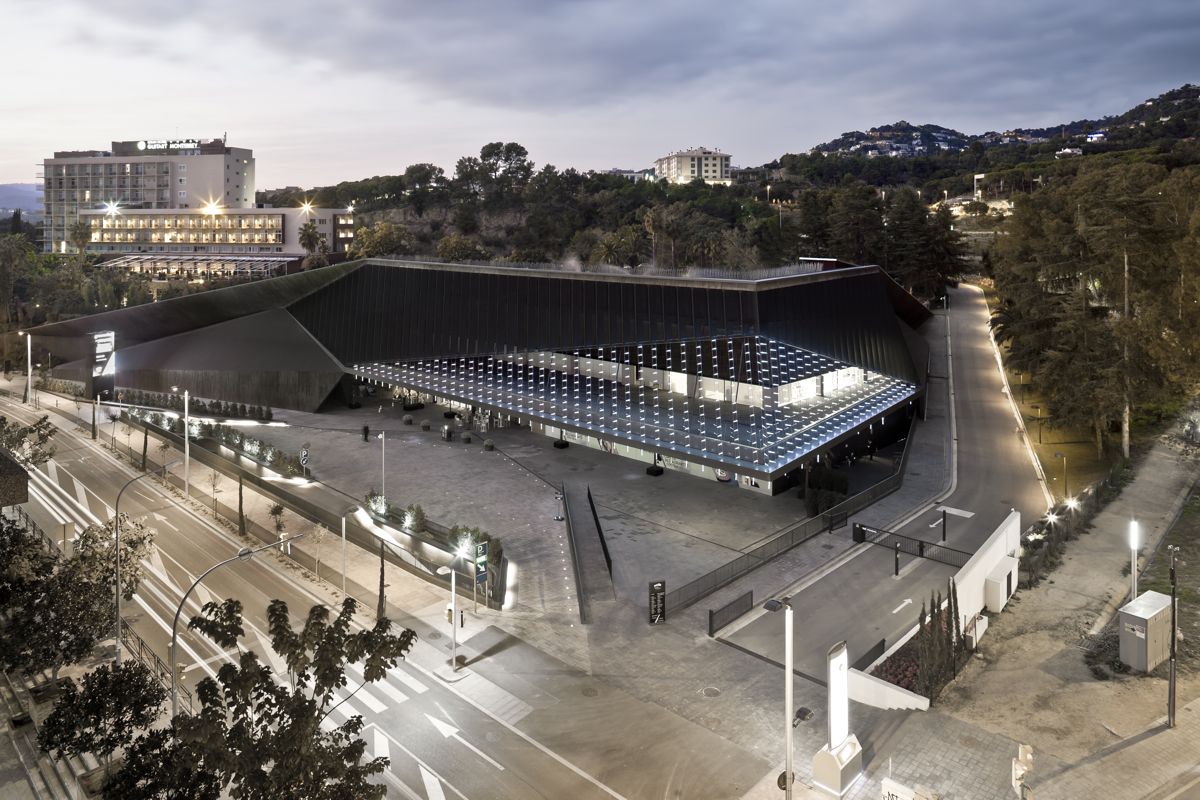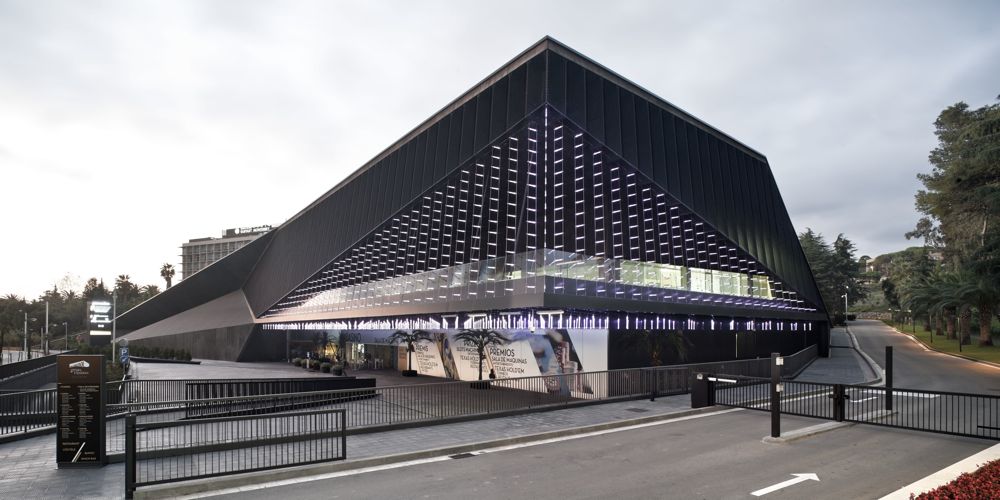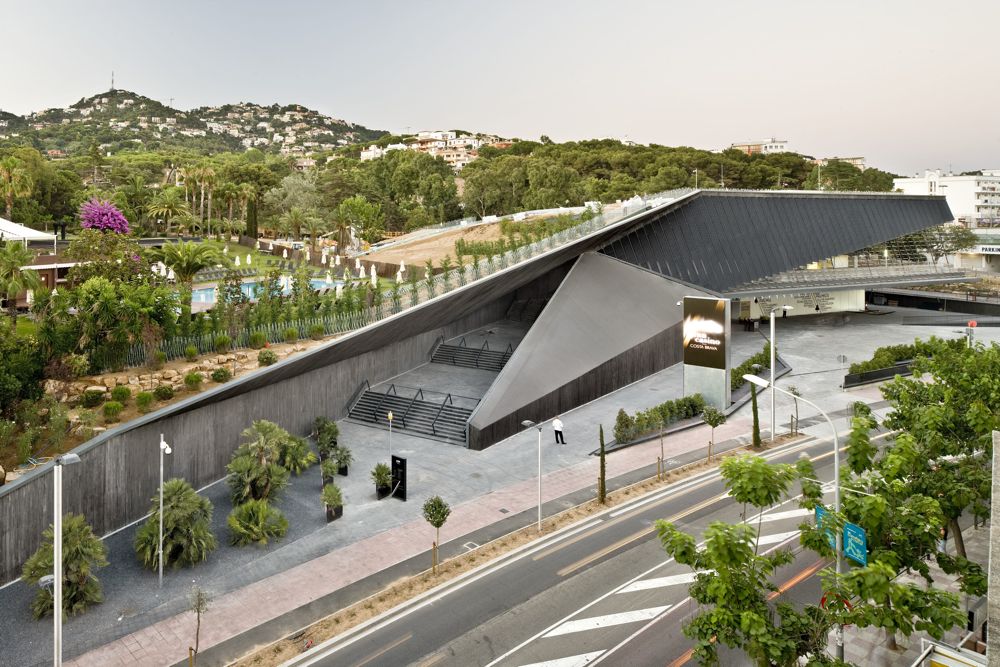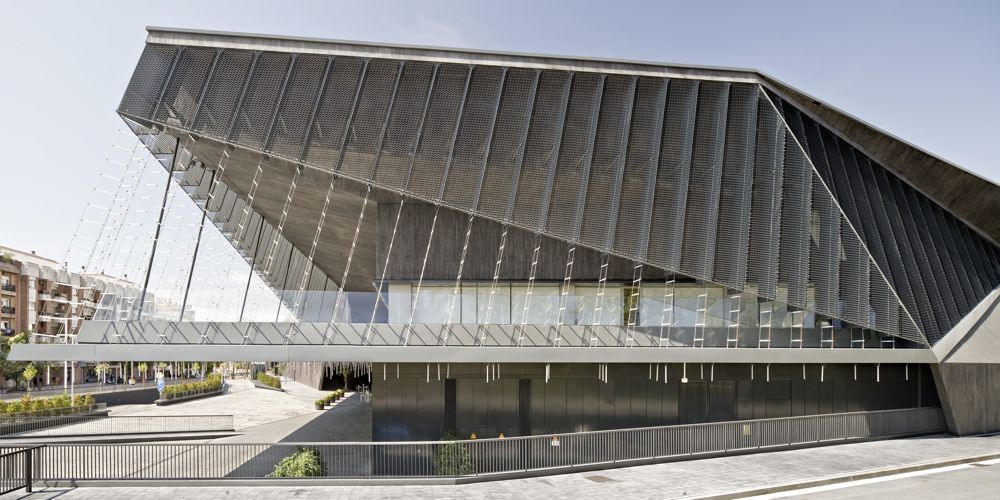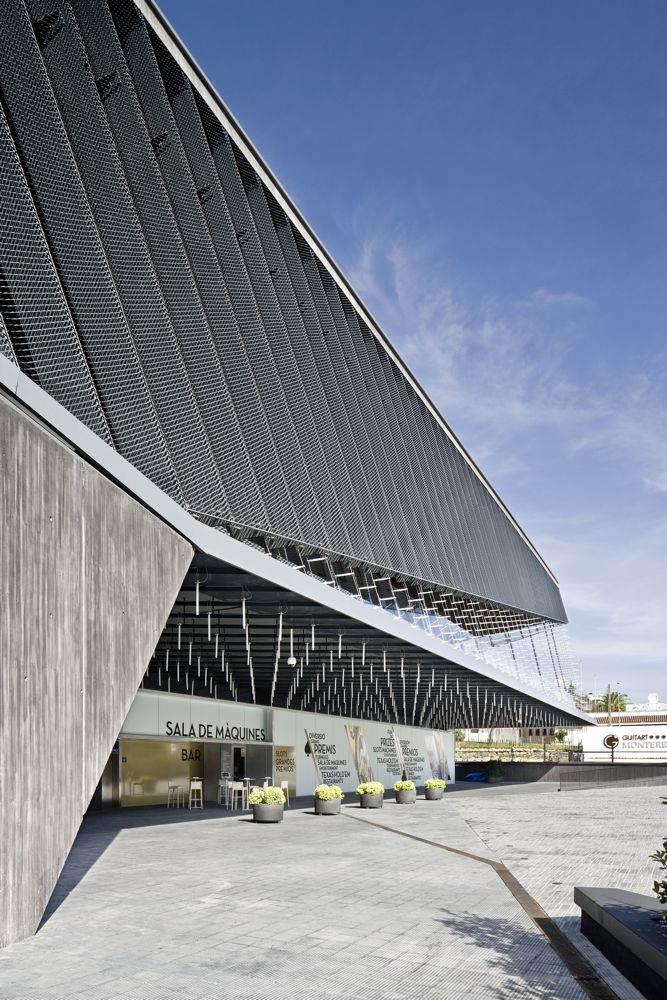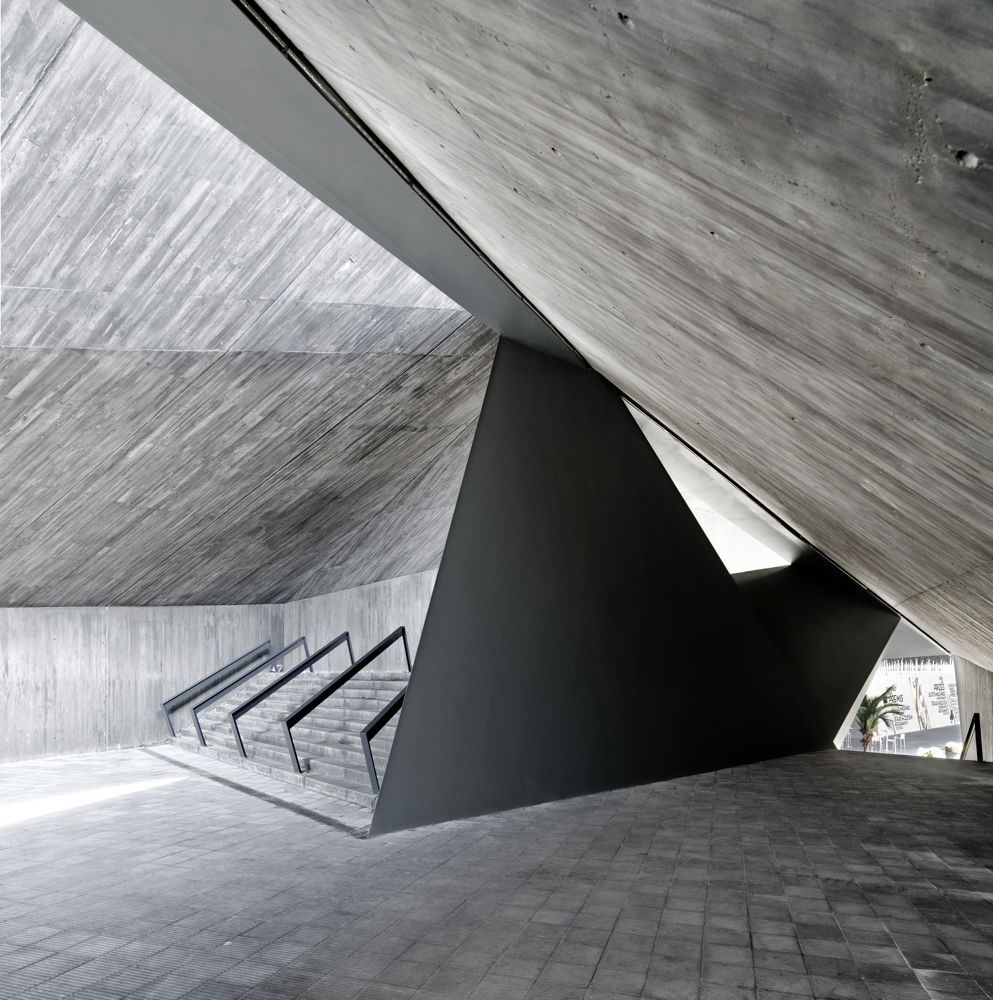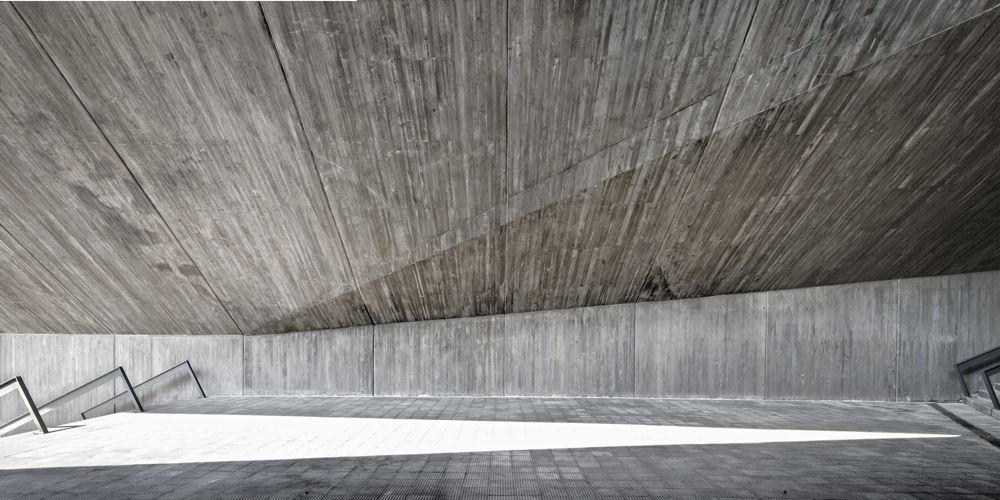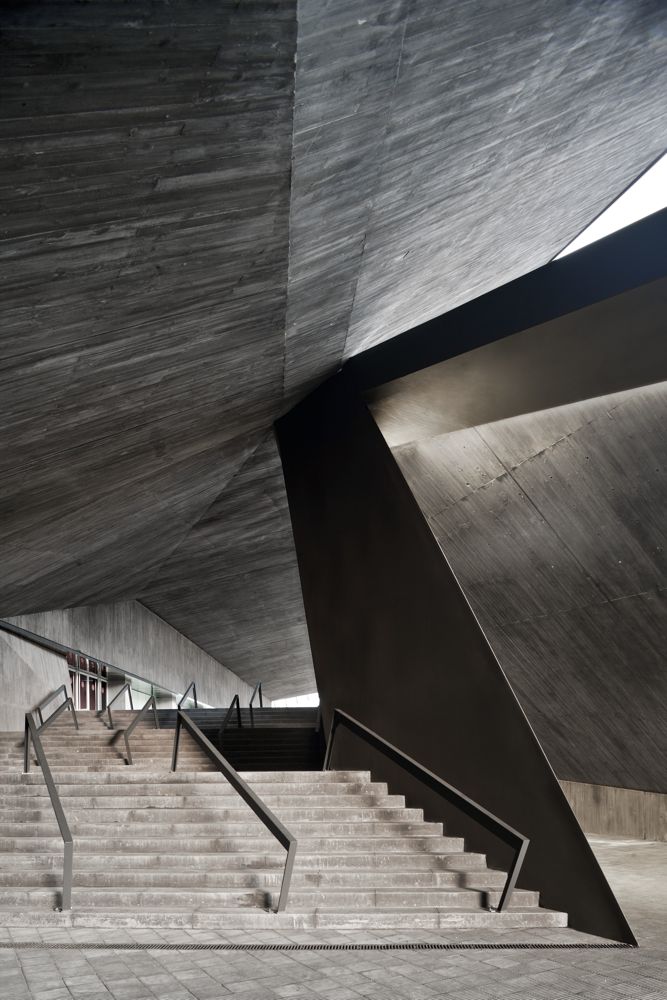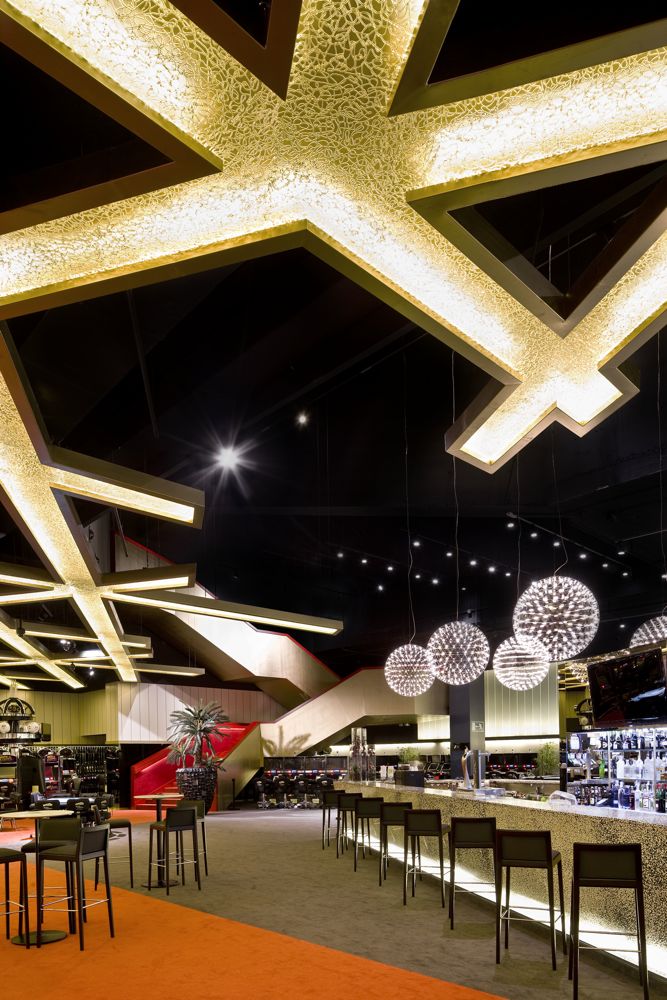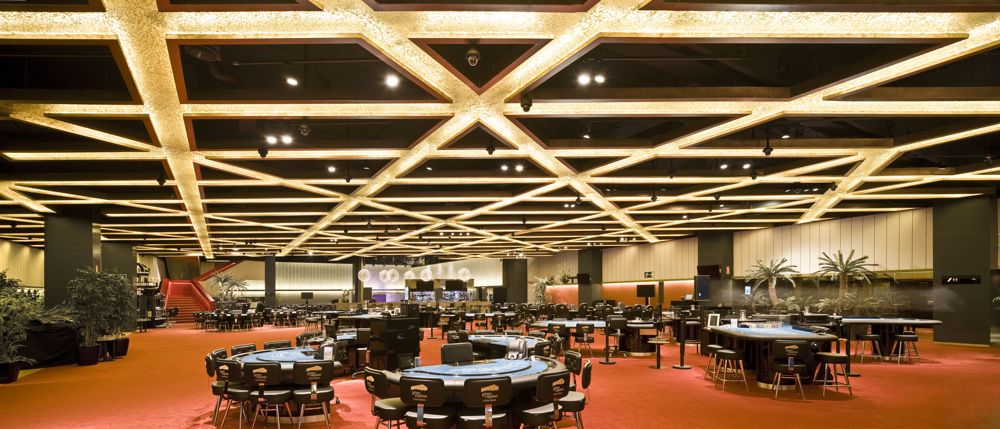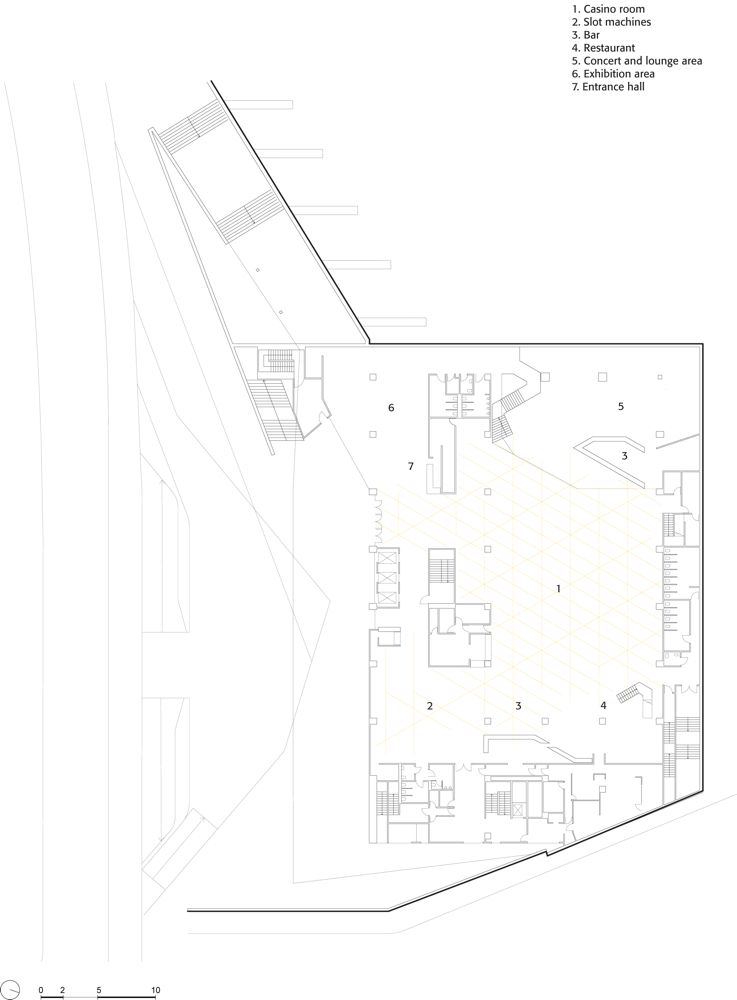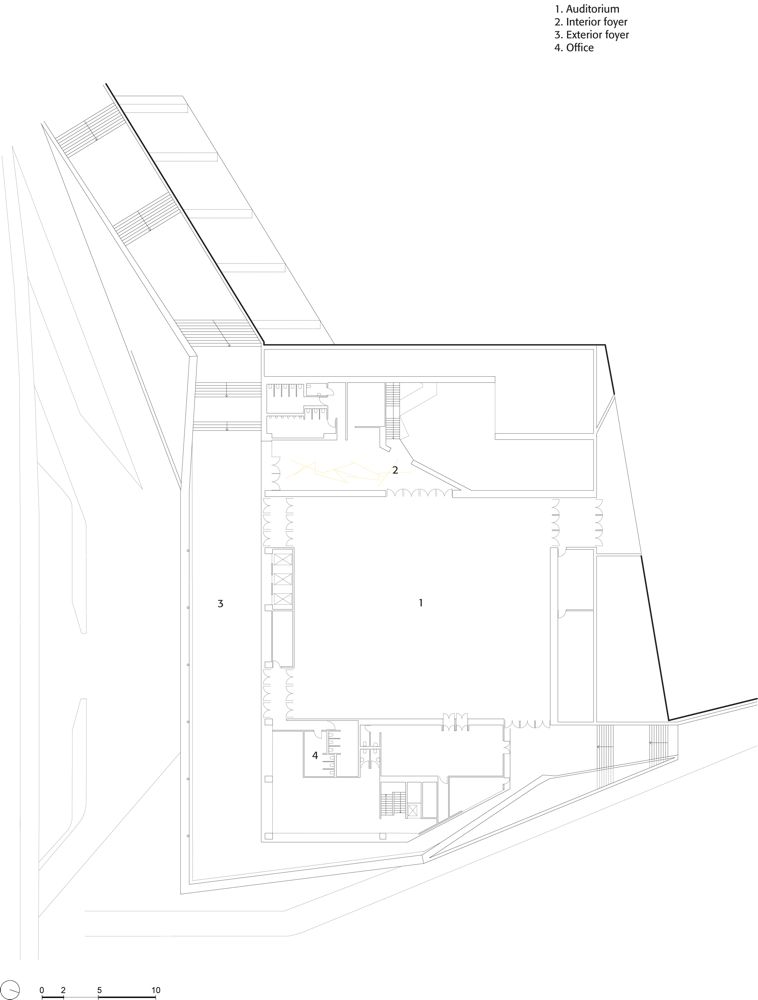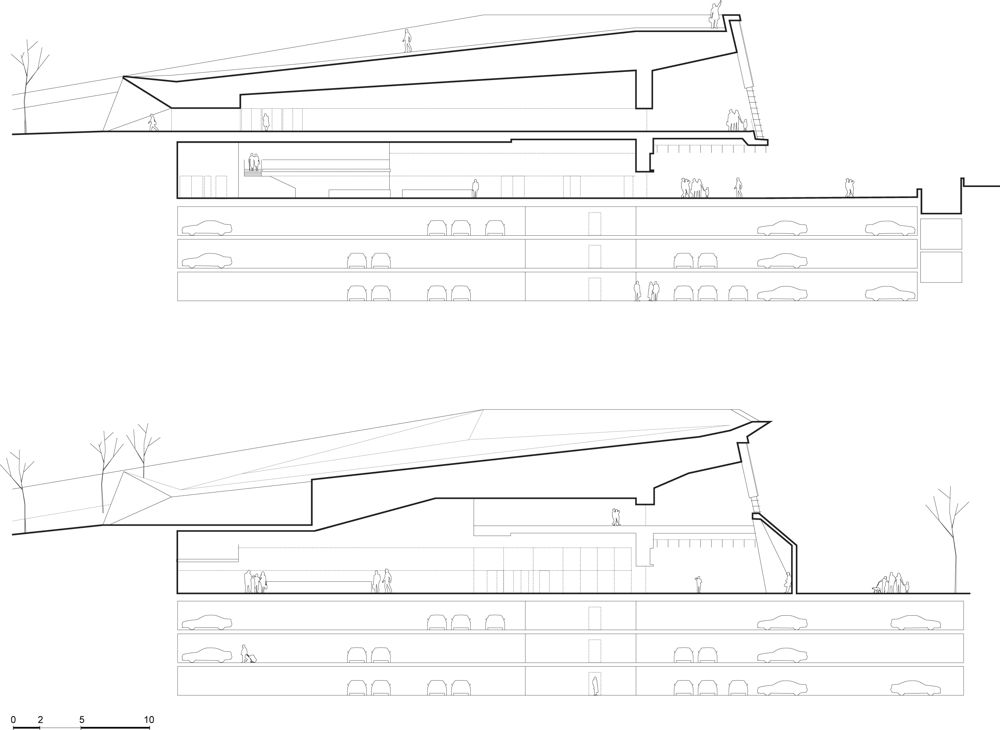By Roberto Lucchese
Photos by Adrià Goula
The Gran Casino Costa Brava, located in the historic gardens of the Gran Hotel Monterrey in the centre of Lloret de Mar (Girona), is based on a distinctive environmental and architectural project by b720 Arquitectos, headed by Fermín Vázquez. At once practical and singular, the design of the new casino breaks with convention by approaching the complex as a unified structure that rises out of the ground. The building is divided into three clearly differentiated levels that are integrated in the surrounding environment.
The structure breaks through to the surface as a continuation of the gardens of Hotel Monterrey, which extend between the Tossa de Mar road and the hotel access road. By virtue of its configuration (largely buried beneath the ground), the casino forms an integral part of the hotel garden. At the same time, it succeeds in revitalising the south face of the Monterrey complex and enriches the urban perimeter by providing a broad zone for recreational use and services. The building thus presents a striking face to the public thoroughfare while remaining hidden – transformed into an element of the topography – from the vantage point of the hotel garden.
The way the casino emerges from beneath its green mantle and opens up to the city reflects the distinct nature of the two sides of the site (private and public) and addresses the difference in elevation between the public thoroughfare and the hotel gardens (which had to be conserved). As an extension of the existing exterior space, the landscaped roof mitigates the visual impact of the architectural complex as well as shielding the hotel from noise pollution from the road.
Functional programme
When a major recreational facility like a casino is built, a range of services and complementary uses – including the restaurant, kitchens, car park, conference room, and slot machine area – need to be accommodated and distributed within a single building. Excellent accessibility is crucial, a large parking area must be provided, and an optimal relationship of dialogue with the immediate urban environment needs to be established. In addition to meeting these requirements, the design is based on a unitary, avant-garde image intended to convey the dynamism and emblematic character of the Gran Casino Costa Brava.
The building has three clearly differentiated levels. The casino is distributed in a number of areas within the main space on the ground floor. This floor includes the slot machine area, gaming room, nightclub, exhibition space, VIP spaces, restaurant, services (kitchens, storerooms, cloakroom, etc), and administration and security areas. The first floor houses a multifunctional space (auditorium, conference centre, municipal uses, etc) that seats a thousand people. A large foyer that opens to the exterior, service areas and the casino’s management offices are also on this level. Finally, the rooftop, which is for private hotel and casino use, extends the landscaped space by means of a green mantle planted with local species of low-maintenance shrubs and trees. Three below-ground floors are used mainly for parking (450 spaces), and for installations and subsidiary casino spaces (located on the first basement floor).
Façades and topographic mimicry
The inclined planes of the façades are made of integrally coloured reinforced concrete formed using tongue-and-groove pine boards. The floor that houses the multipurpose space is delimited by a series of broken concrete planes that evoke the tectonic movement of the ground from which they rise. The planes open onto a lattice structure that borders the foyer space, through a façade that confers a singular identity on the casino thanks to a system of digital lighting that extends toward the marquee. This multimedia illumination, which can reproduce moving images, comprises LED lights controlled by a centralised system and specific software that creates special light effects according to the activities taking place in the casino. This floor is also linked to the hotel gardens by an opening in the landscaped roof, a feature that facilitates the staging of outdoor events.
Interior design
The interior design is defined by a number of strata with distinct decorative values. The floor is a continuous surface of low-pile carpeting in different colours to match the activity carried out in each area. This plane is surrounded by a background (reaching to a height of 2.1 m) covered in different fabrics with vertical bands of bronze bevelled mirrors, black glass, bronze, and terrazzo in black and sand tones. This stratum is generally bathed in light projected from above to highlight its decorative value and create the right atmosphere in each area. Above this level there is a more neutral horizontal band with large backlights that clearly demarcate the dining area and the nightclub space. Finally, hanging lighting in the gaming room makes a striking visual impact. Diffuse golden light emanates from a crisscross structure that is the crowning decorative feature of this space.
Plant. First floor.
Plant. Second floor.
Sections.





